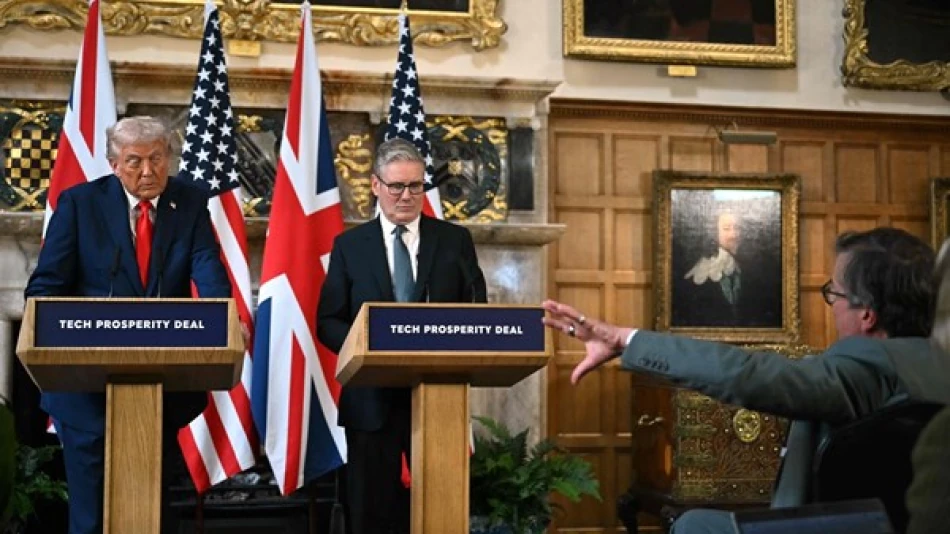
Trump Aims to Regain Strategic Baghram Air Base in Afghanistan
Trump Signals US Push to Reclaim Strategic Bagram Air Base from Taliban-Controlled Afghanistan
President Donald Trump announced Thursday that the United States is actively pursuing efforts to regain control of Bagram Air Base in Afghanistan, the former cornerstone of American military operations that fell to the Taliban following the 2021 withdrawal. Trump's statement signals a potential shift toward renewed military engagement in a region where China has been expanding its influence since the US departure.
Strategic Value Beyond Afghanistan's Borders
During a joint press conference with British Prime Minister Keir Starmer, Trump emphasized the base's strategic location near China as a key factor driving US interest. "We are trying to get it back," Trump stated, referring to the airfield that served as America's primary military hub in Afghanistan for nearly two decades.
Bagram's position places it within striking distance of China's western regions and along critical supply routes connecting China to Central Asia. This geographic advantage made it invaluable during the height of US operations in Afghanistan and explains why its loss has been viewed as a significant strategic setback by military analysts.
From Soviet Legacy to American Stronghold
Originally constructed by the Soviet Union during its own ill-fated Afghan campaign in the 1980s, Bagram Air Base became the nerve center of American military operations following the September 11, 2001 attacks. For twenty years, it housed tens of thousands of US and allied forces, serving as a logistics hub, detention facility, and launch point for operations across the region.
The base's abandonment in July 2021, ahead of the final US withdrawal, marked a symbolic end to America's longest war. Taliban forces quickly seized control, gaining access to significant military infrastructure and equipment left behind during the hasty departure.
Geopolitical Implications of a Potential Return
Trump's stated interest in reclaiming Bagram reflects broader concerns about China's growing presence in Afghanistan since the Taliban's return to power. Beijing has maintained diplomatic relations with the Taliban government and shown interest in Afghanistan's vast mineral resources, particularly lithium deposits crucial for battery production.
Any serious attempt to regain Bagram would require either Taliban cooperation—highly unlikely given current relations—or military action that could destabilize the region further. The Taliban has shown no indication of willingness to cede control of strategic assets to Western powers, having spent decades fighting to expel foreign forces.
Military and Economic Realities
Reestablishing an American presence at Bagram would demand massive financial investment and likely face fierce resistance. The Taliban government, while internationally isolated, maintains effective control over Afghan territory and has proven resilient against foreign military pressure.
For defense contractors and military suppliers, Trump's comments may signal potential opportunities if his administration pursues renewed engagement in the region. However, the practical challenges of operating in Taliban-controlled territory without local cooperation remain formidable.
The statement also raises questions about US commitment to its stated goal of ending "forever wars" in the Middle East and Central Asia, suggesting that strategic competition with China may override previous withdrawal policies.
Most Viewed News

 Layla Al Mansoori
Layla Al Mansoori






